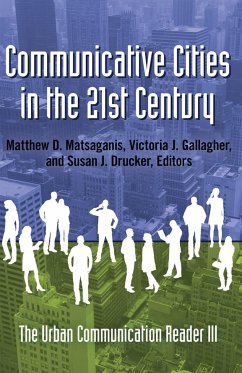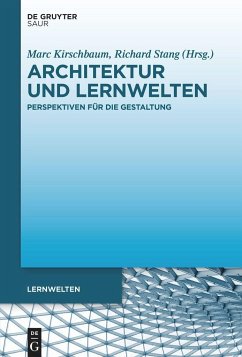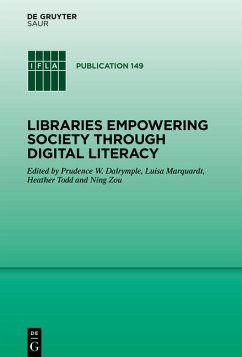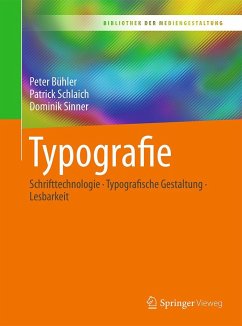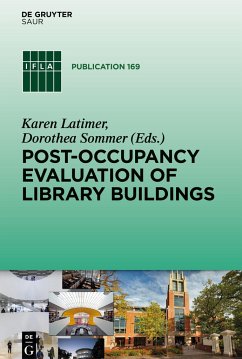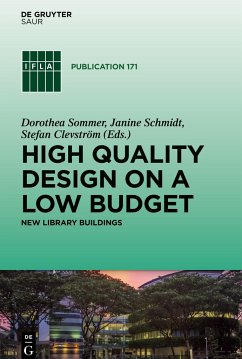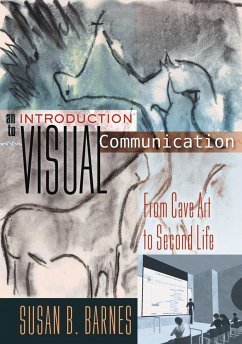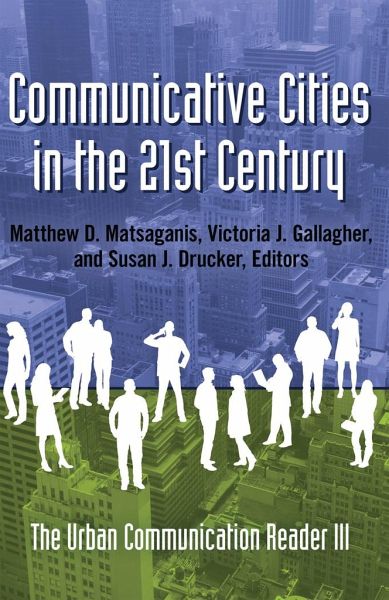
Communicative Cities in the 21st Century
The Urban Communication Reader III
Herausgegeben: Drucker, Susan J.; Matsaganis, Matthew D.; Gallagher, Victoria J.

PAYBACK Punkte
0 °P sammeln!
This book explores the concept of the "communicative city", developed initially by participants in an international Urban Communication Foundation initiative, by bringing together scholars from across the communication arts and sciences seeking to enhance our understanding of the dynamic relationship between urban residents and their social, physical, mediated, and built environments. The chapters are arranged in categories that speak to two larger themes: first, they all speak to at least one aspect of the qualifying and/or disqualifying characteristics of a communicative city. A second, larg...
This book explores the concept of the "communicative city", developed initially by participants in an international Urban Communication Foundation initiative, by bringing together scholars from across the communication arts and sciences seeking to enhance our understanding of the dynamic relationship between urban residents and their social, physical, mediated, and built environments. The chapters are arranged in categories that speak to two larger themes: first, they all speak to at least one aspect of the qualifying and/or disqualifying characteristics of a communicative city. A second, larger theme is what we might refer to as a master trope of the urban experience and, indeed, of urban communication: inside/outside. The research presented here represents social scientific and humanistic approaches to communication, quantitative and qualitative methodologies, and positivist/normative and interpretive orientations, thereby providing a deeper understanding of the multi-level phenomena that unfold in urban communities.





